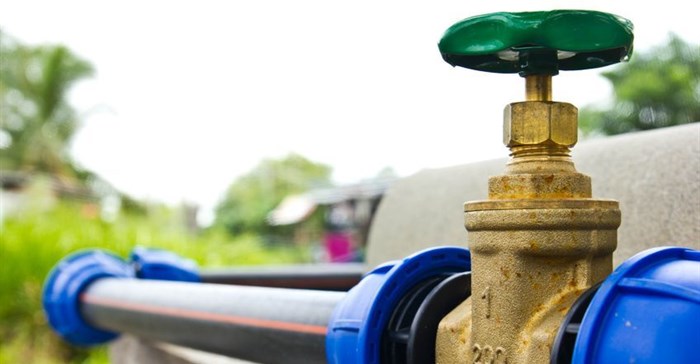
Related
Top stories






More news





ESG & Sustainability
#Sona2026: President announces crisis committee to tackle SA's water challenges









This, too, may be self-evident, but if an authority is needed, this is how the poet Antjie Krog puts it in the preamble to one of many policy documents published by the Department of Water and Sanitation: "With water we will wash away the past, we will from now on ever be bounded by the blessing of water."
Yet, for millions of South Africans, this is a receding dream. UN data shows that nearly all urban dwellers in formal settlements now have access to piped water and that about 80% of rural areas have improved access, up from about 66% in 1990.
However, recurring crises have shown it is readily and frequently reversed, as during the emergencies in Cape Town and at Ugu in KwaZulu-Natal. There, SA's cyclical and perennial droughts, along with ageing and inadequate infrastructure, poor maintenance and planning and capacity constraints, specifically at local government level, are being blamed for "Day Zero" - when the taps run dry.
Administrative fiat may also lead to Day Zero. In November 2017, the Department of Water and Sanitation put 30 municipalities on notice that their water supply would be restricted unless they paid their overdue water debt.
For people living in higher lying areas, Day Zero had arrived. The department acknowledges some "challenges". Its spokesman, Sputnik Ratau, says "the fiscus is unable to comprehensively fund water and sanitation infrastructure due, in part, to the competing interests to a finite amount of money".
It also has difficulties with operating and maintaining existing infrastructure, particularly at local government level. In part, this is due to a lack of technical skill and vandalism and theft.
To tackle its problems, it has called for help from the private sector, most recently at an investment conference in December 2017.
Water projects, mainly to supply bulk water, have drawn investment in long-term instruments, such as the bonds issued by the state-owned agencies Umgeni Water and the Trans Caledon Tunnel Authority, both of which have high investment ratings.
The 2017 conference was not a bond auction, though, but a call for participation in public-private partnerships (PPPs), and for these there is much less appetite. Prof Raymond Parsons, who compiles SA's quarterly Policy Uncertainty index, says there is a lack of clear, unequivocal and serious political commitment and leadership in respect of PPPs.
Related to this, he says, is "a weak and unpredictable" PPP deal flow, which is connected to the absence of a definitive long-term infrastructure plan, despite the existence of the Presidential Infrastructural Coordinating Commission.
There has been "little reliable information on the infrastructure project pipeline", he says. This is compounded by a low technical capacity to drive the transactions, high transaction costs and long lead times, he says.
"The concern is less about the [supported] rigour of the process than with the additional transaction costs added by political risks that bids might be arbitrarily suspended and have long delays in reaching financial closure."
Parsons says there has been a "considerable sagging of confidence" in the prospects for PPPs. "They have likely also become a casualty of the overall rise in policy uncertainty captured by the [Policy Uncertainty] index."
The problem with the government's policy, says Prof Anthony Turton, an expert on the political consequences of breakdowns in water-supply systems, is that there is no clear and coherent policy.
"Without clear policy, no capital or technology can flow into the water sector. Therefore, all executive decision makers at the three tiers of government need to reflect on a coherent policy statement. The National Water Act is not a policy. The National Water Resource Strategy is not a policy. The National Development Plan is not a policy. Law, strategy, regulations and policy are not the same thing."
Two key policy points do emerge from the department's papers. First, the government remains committed to extending an improved water supply to all citizens by developing infrastructure.
Second, the department's position is that infrastructure development must "directly address the linkages between water management and the developmental and transformational goals of [the] government".
This may serve to wash away the past, as Krog writes, but whether it will prevent a day zero is not certain.
Source: Business Day

For more than two decades, I-Net Bridge has been one of South Africa’s preferred electronic providers of innovative solutions, data of the highest calibre, reliable platforms and excellent supporting systems. Our products include workstations, web applications and data feeds packaged with in-depth news and powerful analytical tools empowering clients to make meaningful decisions.
We pride ourselves on our wide variety of in-house skills, encompassing multiple platforms and applications. These skills enable us to not only function as a first class facility, but also design, implement and support all our client needs at a level that confirms I-Net Bridge a leader in its field.
Go to: http://www.inet.co.za